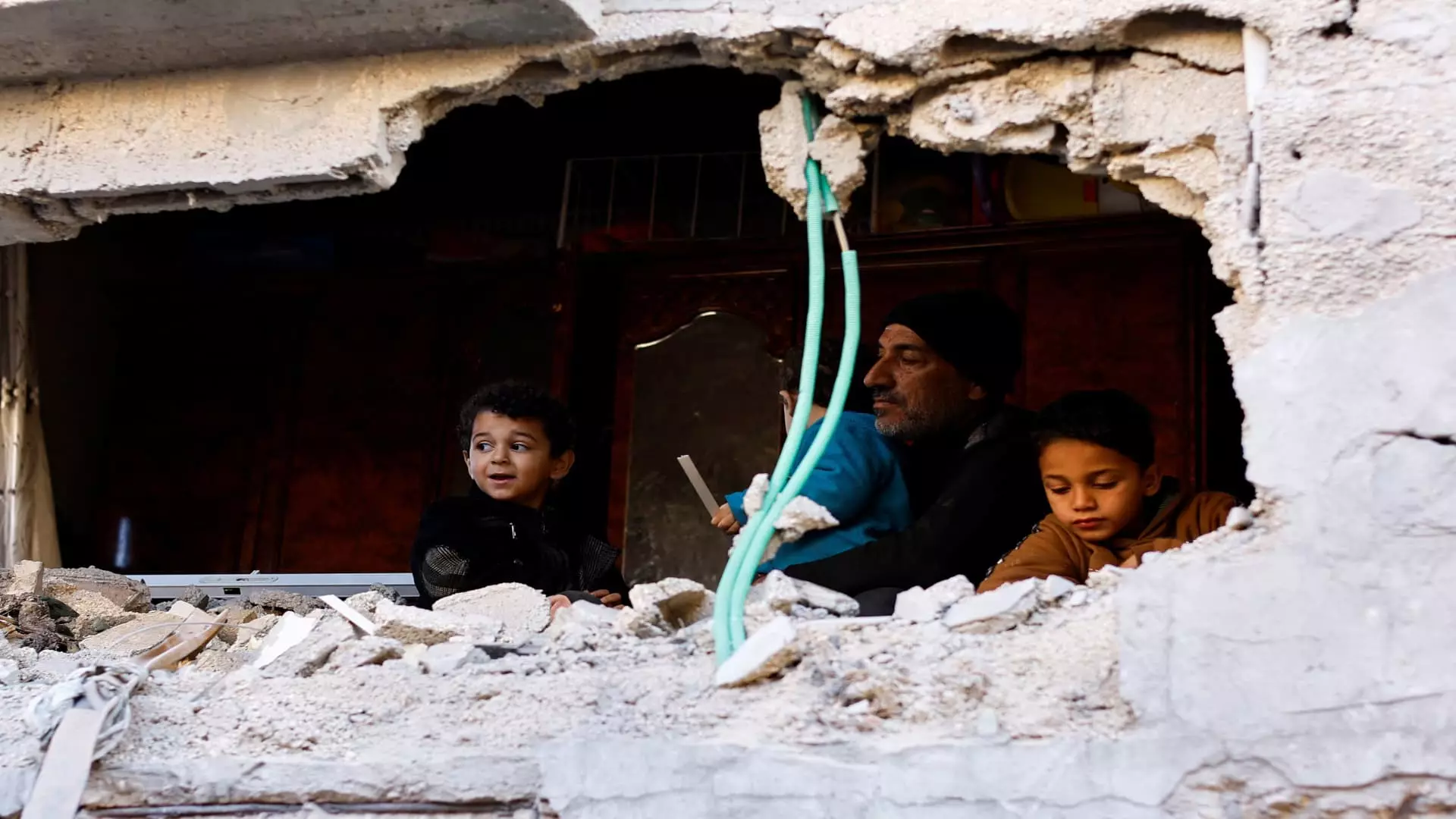The Abu Mustafa family lives in a tent that sits uncomfortably against the imposing concrete and metal fence separating Gaza from Egypt in Rafah. This area has been the last relatively safe refuge for the countless Palestinians devastated by Israel’s military offensive. However, even this sanctuary may now be under threat. More than a million Palestinians are crammed into the vicinity of Rafah, fearing that they have nowhere else to flee. The strip of land they call home has been reduced to rubble, and the fighting still rages on.
Laila Abu Mustafa, a member of the Abu Mustafa family, conveys the daily struggle faced by those displaced by the conflict. “Every day, we’re on the run. Being displaced is tough because I have two daughters with disabilities. I can’t carry them around. I don’t have a car or a cart,” she laments. The dire circumstances augment her resolve: “If there will be more displacement, I’m not moving.”
Israeli Prime Minister Benjamin Netanyahu has devised an evacuation plan for the civilians residing in Rafah. Aid agencies, however, warn that any assault on the city would only exacerbate the already dire situation and lead to catastrophic consequences. The war, which commenced on October 7, witnessed the militant group Hamas storming the border fence with Israel. In the wake of this incursion, 1,200 people, primarily civilians, lost their lives, and approximately 250 hostages were taken. Amidst the four-month-long conflict, Gaza now lies in ruins. Israeli ground forces, supported by daily bombings and artillery fire, have effectively bulldozed the majority of the enclave, including houses, public buildings, and vital infrastructure. Almost 30,000 lives have been lost, with women and children accounting for 70% of the casualties. Furthermore, an alarming 85% of Gazans find themselves homeless, while nearly 10% of children under five suffer from acute malnourishment.
Efforts to broker a ceasefire and secure the release of hostages have proved futile thus far. A recent Hamas proposal was rejected by Israel, as they asserted that fighting could not cease as long as Hamas maintained brigades within the confines of Rafah. Egyptian security sources confirmed that high-level talks involving representatives from Qatar, the United States, Israel, and Palestine were scheduled for Tuesday. The Israeli airstrikes targeting Rafah over the past few days have heightened tensions. In response, Hamas threatened that an assault on Rafah would jeopardize ongoing negotiations aimed at securing the release of remaining hostages.
Despite the international outcry against the potential Israeli offensive on Rafah, Prime Minister Netanyahu remains unwavering in his stance. He made it clear in an interview with US network ABC that Israeli forces would assault Rafah, emphasizing their meticulous planning to ensure the safety of the civilian population during this operation. Netenyahu’s assertion, however, does little to alleviate the concerns. The French Foreign Ministry expressed grave apprehension regarding a large-scale offensive in Rafah, describing it as a “catastrophic humanitarian situation of a new and unjustifiable dimension.”
In this landscape of uncertainty and despair, families like the Abu Mustafas hang their laundry between tents alongside the border fence. The harsh realities of war force them to cook meager meals in empty tin cans over a fire in the sand. Fear of an assault on Rafah dominates every conversation in the crowded city. Mariam, a mother of three who fled her Gaza City home at the start of the war, bears witness to this anguish. “I can’t describe how we feel. There is turmoil in my head,” she confides. Her children anxiously inquire about the impending invasion and their uncertain fate. Mariam, like countless others, finds herself without answers.
While the situation in Rafah remains fraught with peril, hope for a peaceful resolution continues to flicker in the hearts of the oppressed Palestinians. The international community must unite in its efforts to bring an end to this devastating conflict. It is imperative that all parties come together to find a solution that prevents further loss of life and mitigates the widespread suffering experienced by the innocent civilians trapped in this war-torn enclave.


Leave a Reply